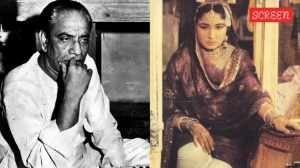Tunisia votes in first Arab Spring election
Tunisian authorities say 70 pc of registered voters have cast ballots so far in elections.
Tunisian authorities say nearly 70 per cent of registered voters have cast ballots so far in landmark elections.
Kamel Jendoubi,head of the electoral commission,said turnout was over 60 per cent and close to 70 per cent by 4 pm Sunday,three hours before the polls close. That was above expectations.
He told reporters there was some soft intimidation of voters,such as street demonstrations and people continuing to campaign on voting day,which is against the rules. He said some parties had received warnings.
The elections are Tunisias first since a popular uprising that overthrew its longtime leader and set off similar rebellions across the Arab world. A moderate Islamic party,Ennahda,is forecast to win the most votes.
Tunisians waited in lines for hours under the sun to vote in the nations first truly free elections,the culmination of a popular uprising that set off similar rebellions across the Middle East.
Voters are electing a 217-seat assembly that will appoint a new government and then write a new constitution.
Voters are definitively turning the page on the 23-year presidency of Zine El-Abidine Ben Ali,who was overthrown by a monthlong uprising on January 14 stirred by anger at unemployment,corruption and repression.
Soldiers were helping keep order. If Tunisias elections produce an effective new government they will serve as an inspiration to pro-democracy advocates across the region,including in next-door Libya,where longtime dictator Muammar Gaddafi was killed last week by rebel forces.
At one voting station,former political prisoner Touhami Sakouhi said he was ready to wait in line all day. Its a historic day,a moment of joy and celebration, he said. In the more affluent Tunis suburb of al-Aouina,18-year-old former protester Zeinab Souayah said,Im going to grow up and think back on these days and tell my children about them.
The ballot is an extra-large piece of paper bearing the names and symbols of the parties fielding a candidate in each district. The symbols are meant to aid the illiterate,estimated at about 25 per cent of the population in a country with one of the most educated populations in the region.
Its a cacophony of choice in a country effectively under one-party rule since independence from France in 1956,and where the now-popular Islamist party Ennahda was long banned. Voters in each of the countrys 33 districts,six of which are abroad,have a choice of between roughly 40 and 80 electoral lists,consisting of parties and independent candidates.



- 01
- 02
- 03
- 04
- 05




























